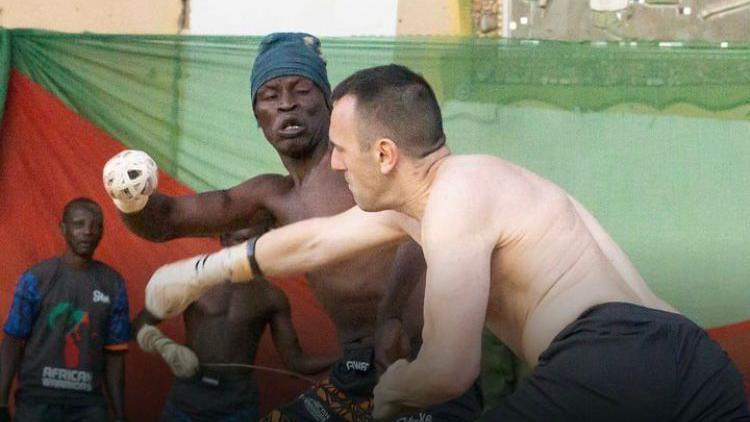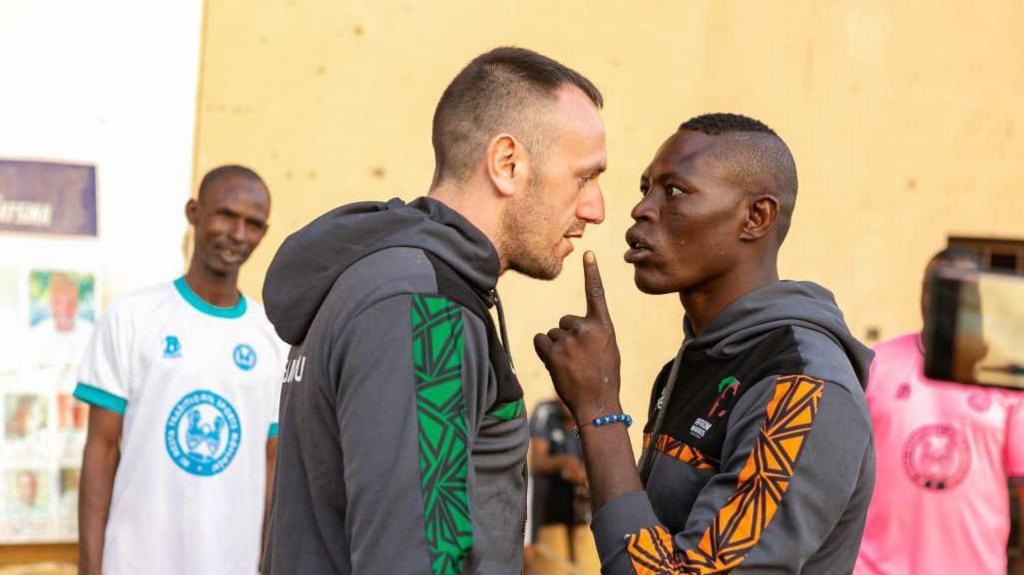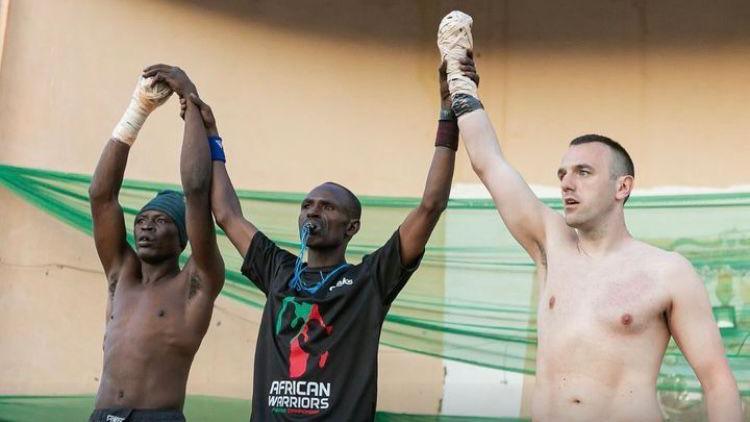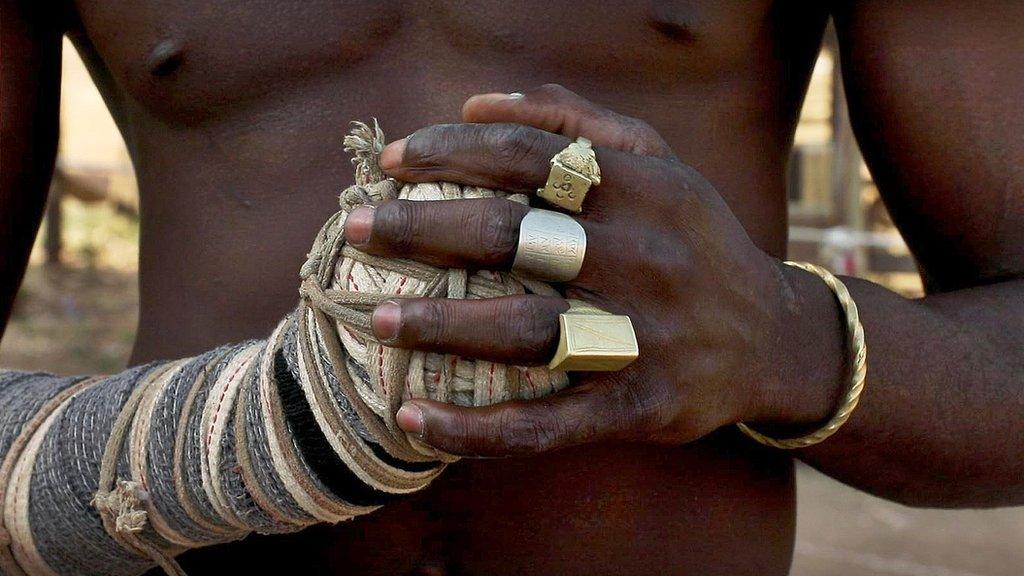Man goes to Nigeria to fight in 'brutal' martial art

Luke Leyland said he is the first white westerner to compete in the ancient sport of Dambe
- Published
A man on a quest to try different combat sports across the world said taking a punch while fighting in an ancient Nigerian martial art was "like getting hit by a boulder".
Luke Leyland, from Birkenhead in Wirral, travelled to the city of Katsina in the north of Nigeria to compete in the traditional boxing-style sport called Dambe.
The martial art is associated with the Hausa people, one of the largest ethnic groups in Africa.
Mr Leyland, 38, has released a documentary about the "brutal" sport and Katsina, where he said he received a welcome "just as warm as the weather".
"The love that they showed me after the fight, I will carry that with me forever," he told BBC Radio Merseyside's UK Black programme.
"They were very happy I was there and I felt part of the community."

Mr Leyland fought against local fighter, Shagon Yellow
Dambe is a form of boxing in which players win by putting their opponent down to the ground with a punch from a hand wrapped in a tight rope, known as a 'Kara', or with a kick.
The sport has been a Nigerian martial art for more than 1,000 years, and has its roots in spear and shield warfare.
"It's a very brutal sport, it's a sport these fighters do weekly," Mr Leyland said.
He said: "I took a few smacks and it's like getting hit by a boulder, it's definitely a weapon.
"When I had it [the Kara] on I couldn't wait to get it off, but you slowly start getting used to it."

Dambe is a traditional sport in Hausa communities in northern Nigeria
Mr Leyland fought against local fighter, Shagon Yellow and lost, but admitted his opponent was surprised when he uttered a phrase in 'Hausa' shortly before the match.
He said: "I remembered the Rocky film when Ivan Drago was stood in front of Rocky where he says 'if he dies he dies'.
"I thought if I can take a little bit of that with me, so I said in their language, 'Leyland is here and he will win' and he was really taken aback but equally I could tell the community had respected my willingness to learn.
"Whatever the local fighters go through, I wanted to go through, out of respect for the sport and the people."
The documentary has not been released yet, but Mr Leyland said he wats to showcase his journey to the world.
Get in touch
Tell us which stories we should cover on Merseyside
Listen to the best of BBC Radio Merseyside on Sounds and follow BBC Merseyside on Facebook, external, X, external, and Instagram, external. You can also send story ideas via Whatsapp to 0808 100 2230.
- Attribution
- Published21 December 2023

- Attribution
- Published12 April 2020

- Attribution
- Published4 December 2019